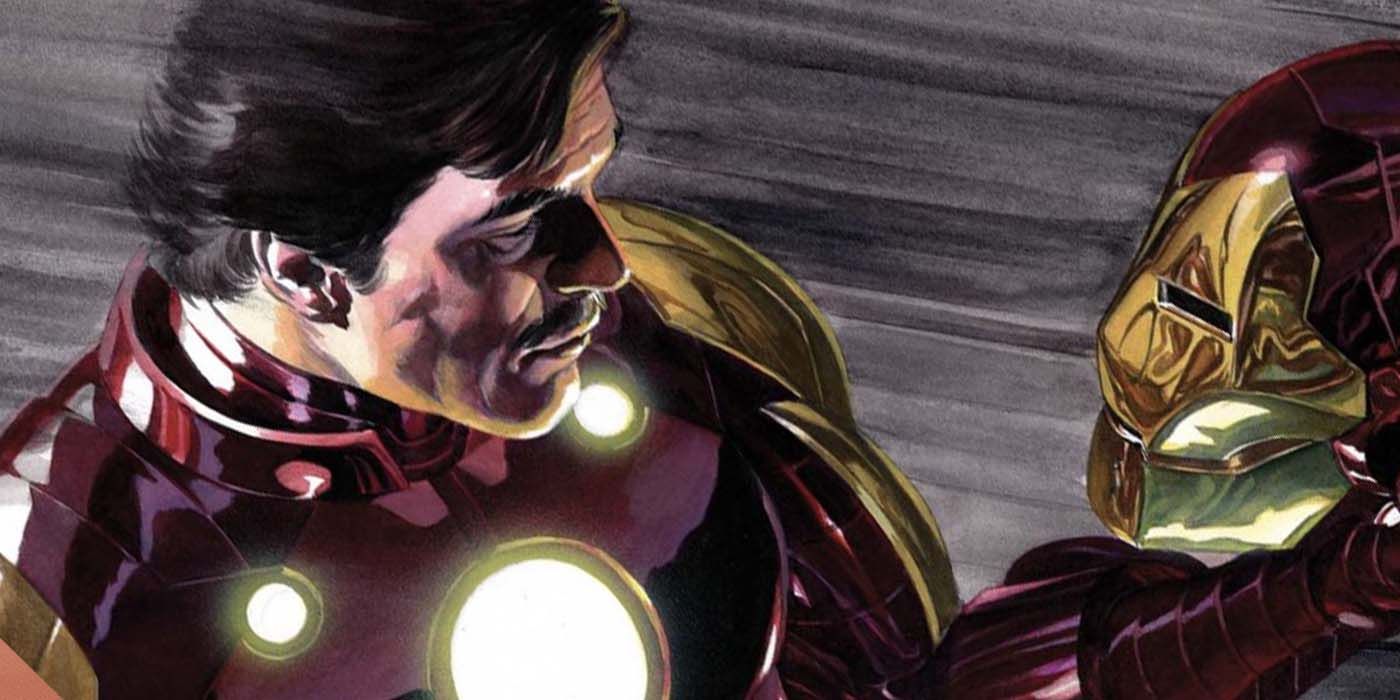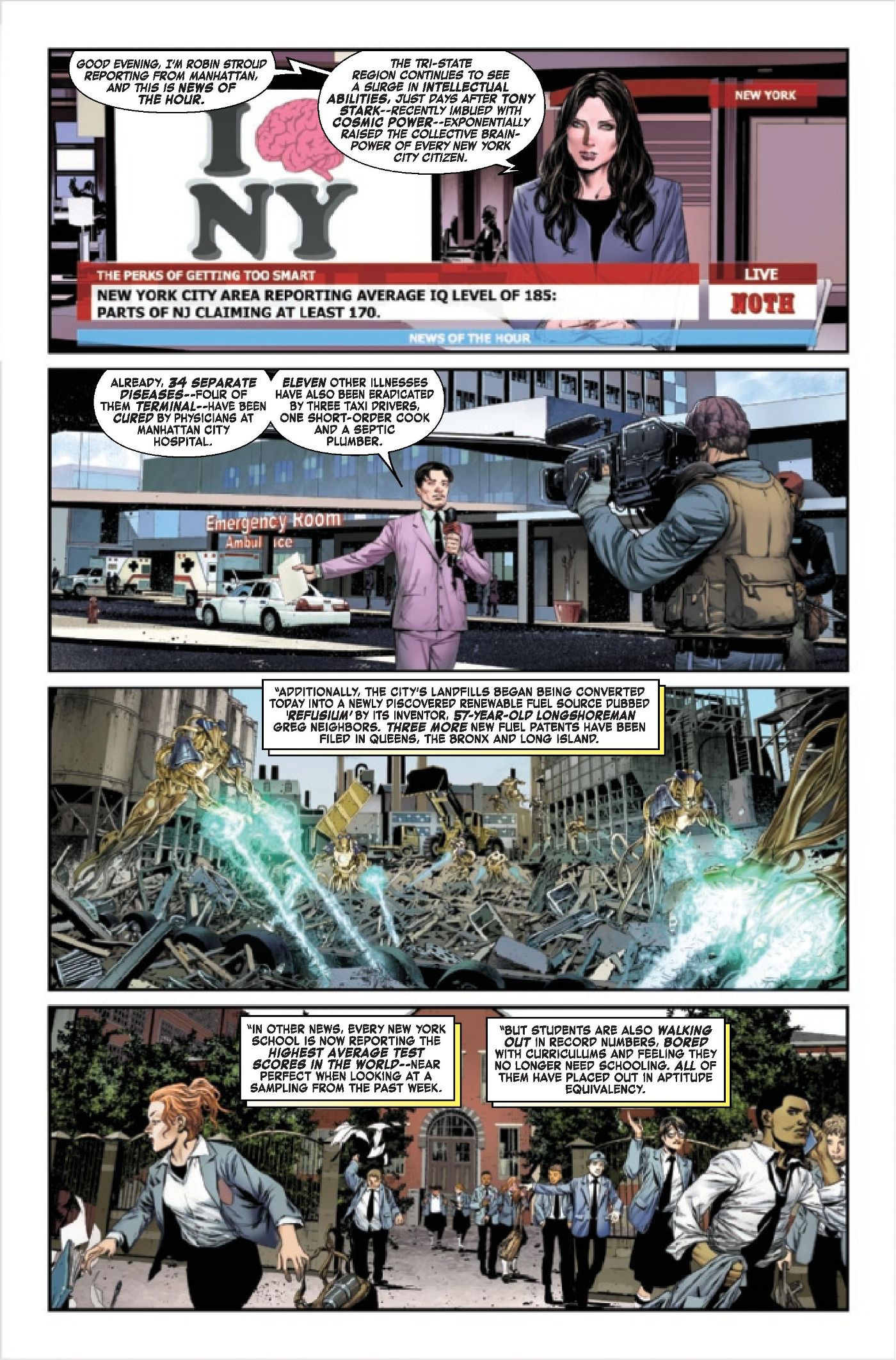Warning: Contains spoilers for Iron Man #17
In the latest Iron Man issue (by Christopher Cantwell, Ibraim Roberson, Angel Unzueta, and Frank D'Armata), one of the biggest plot holes of the Marvel Universe is called out. In a world full of super-geniuses, the common people keep experiencing the same problems present in the real world, such as illness, poverty, and war.
Recent Iron Man stories have seen him transform into the Iron God, after being imbued with the near-omnipotent Power Cosmic. Iron Man had to acquire this unbelievable source of power to stop the villain Korvac from doing the same and becoming a vengeful god-tyrant, but after his victory, the question remained of what he would do with his newfound abilities. He decided that the best way to make a positive impact in the world was to give everyone his intellect, and he started with New York City as an experiment. Now the whole city is filled with geniuses, with chaotic consequences. Kids leave school because they are bored with the curriculum, the stock market goes haywire due to data manipulation, more supervillains appear, law enforcement leave their jobs to focus on building a space program. Amongst the most positive effects of Iron Man's actions, however, there is the fact that 34 separate diseases, 4 of which terminal, have been eradicated by physicians, with 11 more being cured by taxi drivers, cooks, and plumbers.
One question that fans have been asking for decades is why, if the Marvel Universe is full of people with incredible intellect, so little is done to help common people. The actual reason is that superhero comics want to maintain a certain amount of suspension of disbelief by making their worlds look as similar as the real one. Marvel built its fortune on setting its stories in "the world outside your window" (hence why most of them take place in New York), and a world where cancer has been cured, poverty has been eradicated, and all weapons destroyed would not look realistic. It's hard to justify this in-universe though. Even before becoming a god, Stark built technology that defies imagination. Hank Pym cracked the secrets of molecular biology and subatomic physics, Reed Richards is one of the smartest men in the galaxy, and T'Challa can literally speak with the dead. Why, then, are people still dying of illness in the Marvel Universe?
Usually, the in-universe answer is either that some problems are beyond even these geniuses' intellect, or that they do not want to upset the world's balance by introducing too many changes. It is obvious that, in front of things like death, famine, and poverty, these motivations are petty. Plumbers, cooks, and taxi drivers were able to cure 11 diseases after just a few hours with a Stark-level intellect. These are people without previous education or experience, and doctors (who have both) had three times their results in the same time. What would people like Tony or Reed, who had the best education possible and also entire lives to practice with their superior intellects, be able to do if they focused on that, rather than building armors and going on space vacations with their families? More importantly, how much would they have accomplished already, if they had focused from the beginning on actually making the world a better place rather than on superhero antics?
Many comics in the past have explored the concept of what would happen if superheroes actually focused on making the world a better place rather than reacting to threats or stopping crime. The Iron God's experiment seems to be going in that direction, but at the moment the only thing that Iron Man was able to accomplish is to expose one of the Marvel Universe's biggest plot holes.


